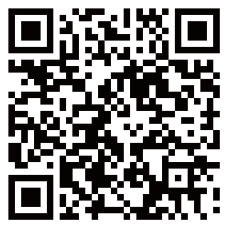

Back to school time is here, so our education commentator Professor John Richard Schrock sounds off on a favorite topic: textbooks.
Recent debates have arisen in the education media over whether printed textbooks are any longer of value.
A June 9 Edutopia article asks, “Should Textbooks Still Play a Role in Schools?” Many teachers are cruising the internet for curriculum to download, with online exercises developed by a growing industry (Teachers Pay Teachers, Teacher Lingo, Educents).
Some digital worksheets, group projects, and class assessments may be downloaded for free.
This saves the school district the cost of buying textbooks but does not recognize the time consumed by their teachers developing their own textbook “replacement.”
Nor does it factor in the exorbitant cost of providing Chromebooks to each student, a technology that requires replacement each three years and which well exceeds the costs of printed textbooks.
While textbooks are taken home, school laptops are often restricted to school.
The Edutopia article lists supposed problems with textbooks:
“They’re expensive, quickly outdated and, according to recent research, may offer biased or limited viewpoints.
There’s also pedagogical baggage: some argue that textbooks can become a crutch, rigidly limiting teachers’ ability to branch out and create a rich learning experience with primary documents and other resources.”
Fortunately, they also note the extensive problems with quality and reliability of online-derived material, noting “…that PowerPoint slides and lessons gathered from the internet are easy to obtain but are often low-quality.”
A weakness in that discussion is the now longstanding research showing the inferiority of reading materials on-screen versus in print, with on-screen found to be up to 30 percent slower (Bigelow, et al.), 30 percent lower retention (Forrester Research), and presenting major problems with eye fatigue and distraction.
In addition, three major meta-analyses indicate that reading from print results in more comprehension and learning.
Today, we call this “deep reading” where a student is absorbed in the content and not easily distracted.
Textbooks from major publishers are rigorously edited to exclude erroneous material while online materials are a major source of misinformation.
For a deeper understanding of the science of reading, see Gordon Legge’s 2007 Psychophysics of Reading in Normal and Low Vision. Further debates are described in Who Wants Yesterday’s Papers: Essays on the Research Value of Printed Materials in the Digital Age edited by Carignan et al. in 2005.
A variety of earlier essays in Overcoming Textbook Fatigue; 21st Century Tools to Revitalize Teaching and Learning by ReLeah Cossett Lent provide a variety of perspectives but fail to overcome the problems that have arisen from technology.
The pandemic provided a hard lesson in the inferiority of online education and screen-reading. Nevertheless, alongside the solid data showing dramatic losses in learning published in Education Week and Chronicle of Higher Education are extensive advertisements promoting even more teaching using online technology.
Abandoning textbooks, along with adopting “digital labs” and online “field trips” will further accelerate our education race to the bottom.
Thanks to Prof. Schrock for researching and presenting these facts and figures.
Visit the “Why Print” link on Copresco’s webpage for links to more studies that detail how the human brain assimilates knowledge in print vs onscreen.

A high school in Kansas opened bragging that it was completely paperless and they saved $200,000 in paper!
When one of their graduates was later in my class, I asked him if they read classic literature online? He admitted that was not possible.
“No, we go home and print it off.” Simply, the $200,000 “saved” was actually spent by the community where the time printing it off likewise added to lost learning time. — John Richard Schrock